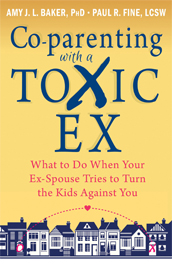When Is the Best Time to Start Family Mediation in the UK? | Guide for Separating Couples

- This blog contains affiliate links, which we may receive a commission for purchases. The decision is yours, whether or not you decide to buy.
When Is the Best Time to Start Family Mediation in the UK?
If you’re going through a separation or divorce in the UK, you're likely feeling a mix of emotions - sadness, frustration, confusion, and anxiety about the future. You may also be deeply concerned about how your children will be affected.
You’re not alone - and you don’t have to go through it on your own.
As a family mediator, I work with many parents who feel overwhelmed and unsure where to begin. My aim is to offer a calm, supportive space where you can work through practical decisions in a way that feels respectful, manageable, and focused on what matters most - your family.
In this guide, I’ll explain the best time to start family mediation, how the process works, and why getting early support can make a significant difference in your experience and outcomes.
What Is Family Mediation and Why Is It Important?
Family mediation is a safe, structured process that helps separating couples make key decisions about parenting arrangements, finances, and the future. A professionally trained, neutral mediator (like me) guides the discussion - not to take sides, but to support both of you in having a clearer, more constructive conversation.
Mediation is a form of alternative dispute resolution (ADR) - a way to resolve family issues without going through court. Increasingly, UK families are choosing mediation because it is:
- Flexible
- Cost-effective
- Less adversarial than legal proceedings
The UK legal system also encourages mediation. The Family Law Act 1996 and Civil Procedure Rules promote mediation as a first step, especially when children are involved.
Is Mediation Required Before Going to Court?
In most cases, yes. Before applying to a family court for decisions about child arrangements or financial orders, you’re expected to attend a MIAM - a Mediation Information and Assessment Meeting.
A MIAM isn’t a full mediation session, but a confidential one-to-one meeting with a mediator. We’ll explore your situation and discuss whether mediation could be helpful. You’ll also have the opportunity to ask questions and talk through any concerns.
There are exemptions - for instance, in cases involving domestic abuse - but for the majority of people, the court expects that mediation has at least been considered before a legal application is made.
Many clients find the MIAM a moment of clarity and relief - a safe first step during a difficult time.
When Is the Best Time to Start Mediation?
There’s no perfect time - but there are key moments when starting family mediation can be especially helpful:
1. Right After Separation Emotions are raw and communication can be fragile. Starting mediation early can help both partners begin making practical decisions before conflicts escalate.
2. When Communication Breaks Down If every conversation turns into an argument - or has stopped altogether - mediation offers a structured, safe environment to re-establish respectful dialogue.
3. When Disagreements Arise About Parenting or Money From child contact arrangements to financial agreements, mediation provides space to work through complex decisions with your children's best interests at heart.
4. Before Taking Legal Action If you’re thinking about going to court or have spoken to a solicitor, it’s often wise to try mediation first. It’s typically faster, less stressful, and more affordable.
Why Starting Mediation Early Helps
Choosing to start family mediation early brings emotional, practical, and financial advantages:
It’s More Affordable Than Court
Mediation is usually far less expensive than court proceedings. Sessions are pay-as-you-go, and outcomes are often reached in just a few meetings. Legal Aid may be available depending on your circumstances.
You Stay in Control
Unlike court, where a judge decides, mediation allows you and your ex-partner to shape your own agreements, tailored to your family's unique needs.
It’s Private and Less Stressful
Mediation is confidential and non-confrontational, creating a calm environment to resolve disagreements without public or legal pressure.
It Supports Ongoing Co-Parenting
Mediation promotes healthier communication, which is crucial if you’re raising children together post-separation.
When Family Mediation May Not Be Suitable
Mediation is highly effective, but it’s not right for everyone.
If There Are Safety Concerns
If you’ve experienced domestic violence or feel unsafe, mediation may not be appropriate. Your safety comes first, and legal exemptions exist for such cases.
If Power Imbalances Exist
If one person dominates or the other feels too anxious to speak freely, mediation may not be suitable. I always assess whether mediation feels balanced and fair before proceeding.
If Legal Intervention
Is Essential In rare situations - such as complex legal disputes - family court may be necessary. Mediation isn’t about avoiding legal protections but offering a cooperative first step.
Common Questions About Family Mediation
Can I Refuse Mediation?
Mediation is voluntary. However, if you’re applying to court, attendance at a MIAM is typically required unless you qualify for an exemption. Even if unsure, attending a MIAM lets you explore options without commitment.
What If My Ex Doesn’t Want to Mediate?
You can still attend a MIAM. If your ex declines, I can provide the appropriate court form (such as a Form FM1) so you can proceed legally if needed.
How Long Does Family Mediation Take?
It depends. Some issues are resolved in 1–2 sessions, others may take longer. Sessions typically last around 90 minutes and progress at your pace.
Final Thoughts: There’s No “Perfect” Time - Just the Right First Step
There’s no universal answer to when you should start family mediation - but if it’s on your mind, now may be the right time to explore it. The sooner you seek support, the more options you'll have. At Tandem Mediation, I offer a calm, non-judgmental space to help you navigate separation with clarity and care. With my background in psychotherapy, I understand the emotional weight of these transitions - and I’m here to help you feel less alone, every step of the way. Ready to find out if mediation is right for you? Get in touch - no pressure, just support.
Written by Jo Watson Family Mediator at Tandem Mediation. Visit www.tandemmediation.co.uk for further information.
PHOTO: TIMUR WEBER
You may also like
Books
Buy now from Amazon
Podcast
If you’re looking for some straight-up, positive advice on topics that affect your daily life, then check out The Sue Atkins Parenting Show. Each week Sue bare will discuss every possible aspect of your parenting challenges, from weaning to whining, boundaries round technology to stroppy teens. You’ll get practical tips, techniques and advice that really work- and it’s all totally free.
Articles
- 5 Ways To Parent With A Narcissist
- How To Be Great Parents Through Separation And Beyond
- Divorce From A Child's Perspective
Videos
Practical advice and tips from professionals on what to do with issues and challenges around divorce from parenting to finance.
Events
Practical tips & advice designed to help people going through divorce, whether online or in person.
Useful links
Here's a selection of organistaioins from parenting to finance to help you with your divorce.
Legal professionals
Related Posts
-

Most Common Age for Divorce in the UK and the Key Reasons Behind It
-

Reclaiming Joy After Divorce: Small Daily Rituals That Make a Big Difference
-

Navigating Social Media During Separation: Essential Dos and Don’ts in the UK
-

Is Silence Destroying Your Marriage? How Poor Communication Leads to Divorce (And What You Can Do About It)
-

The Real Cost of Divorce: Hidden Expenses and Smart Savings

.jpg)

.jpg)



.jpg)

